The History of York Rite Masonry
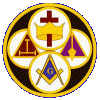
Today,
York Rite Masonry is made up of three distinct bodies; the Royal Arch Chapter,
Council and Commandery. Below is a brief description of the degrees in
the order that they are conferred within each of these bodies.
The Royal Arch
Chapter
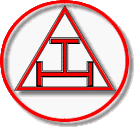
This is the first of the four
degrees in the Chapter, and in it, the candidate is still symbolically
laboring on an unfinished temple, he is taught the nobility of labor and that
in the erection of his moral and spiritual temple he must determine and
prepare the materials of which that temple is to be constructed and to have
due care in so doing the work which he shall present, bearing his mark, shall
be such as to designate him as one worthy of admission to "that house not
made with hands, eternal in the heavens."
Originally the Royal Arch Degree
could not be conferred upon a brother who had not previously presided over a
lodge. Eventually it was conferred upon all candidates for the Royal
Arch Degree. The brother receiving it in that manner is a Virtual, not
an Actual, Past Master. It teaches that he who would rule others must
first learn to rule himself.
This Degree recites the events
surrounding the completion and dedication of King Solomon's Temple. Here
the Mason sees for the first time completed the construction of the Temple on
which he has symbolically labored in all previous degrees.
Symbolically it represents the building of life and character and the reward
which comes to him who faithfully performs his task.
Except the Master Mason Degree,
no Masonic Degree is more important in its historical and symbolic
significance than this. In some form it appears in every Rite, but only
here does its history, its symbolism, its lessons show so vividly its
connection with the Master Mason Degree and the fact that it is, indeed, the
final chapter of that essential degree of Freemasonry. It brings to
light that for which the Mason has searched. Its lessons are the
essence of Masonic truth. Its ceremonies for the most part are founded
upon the return of the Israelites from captivity to rebuild a destroyed
temple, and the discoveries there made.

The Cryptic
Council
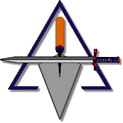
This is the first of the Council
degrees. It is conferred in a place known as the council chamber, which
represents the private apartment of King Solomon's Temple, where he and his
two associates met for consultation and deliberation during the construction
of the Temple, and the drama portrayed in it sheds additional light on both
the Master Mason and Royal Arch degrees. It and the following degree are
essential to a clear understanding of the events of one section of the Royal
Arch.
In the Select Master's degree
which is the second of the Council, the place of meeting represents a
"Secret Vault" or crypt beneath the Temple. The historical
object of the degree is to commemorate the deposits of an important secret or
treasure which, after the preliminary preparations, is said to have been made
by our three Grand Masters.
This degree was not originally a
part of the Cryptic system, and is not in all jurisdictions as yet. It
has one of the best written rituals in Masonry. It deals with the
incidents in the reign of King Nebuchadnezzar when Zedekiah, the last King of
Judah, was conquered and carried captive to Babylon. It enlarges upon
the section of the Royal Arch having to do with the capture of Jerusalem by
the Babylonian King, and teaches in most dramatic fashion the lesson of
fidelity.

The Commandery
of Knights Templar
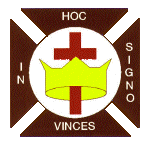
As the first step in a
Commandery of Knights Templar, the Illustrious Order of the Red Cross
continues the story of the Royal Arch and deals with a period in Jewish
history at the time of the return of the Jews from captivity and the efforts
to rebuild the Temple of their God in Jerusalem. The Illustrious Order
of the Red Cross, peculiar to the United States, teaches the lessons of the
triumph of Truth.
The second Order in the
Commandery is the Knight of Malta with its pass degree of Knight of St. Paul
or the Mediterranean Pass. This Order is the first Christian Order
encountered by the candidate. The ritual is based historically upon one
of the old Orders of the Crusades.
This is the third and most
impressive Order of the Commandery and is wholly Christian. The
Templar tradition derives from the Society of the same name which played so
important a part in the Crusades of the Middle Ages. Beautiful lessons
of the death and ascension of our Savior are inculcated and the candidate is
received into full fellowship, in the most solemn manner.

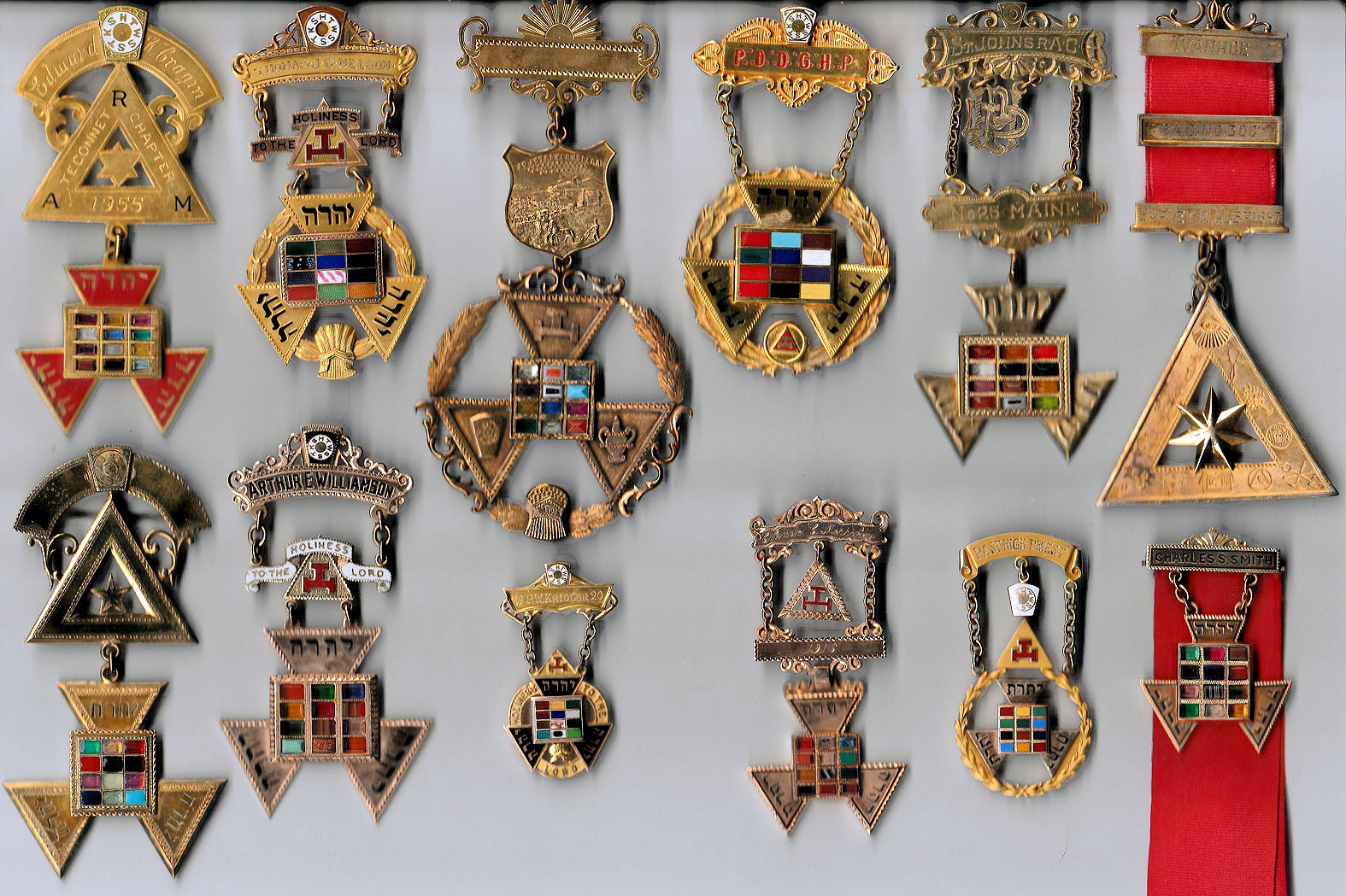
A
beautiful collection of Past High Priest Jewels courtesy of Brother Burke Gray

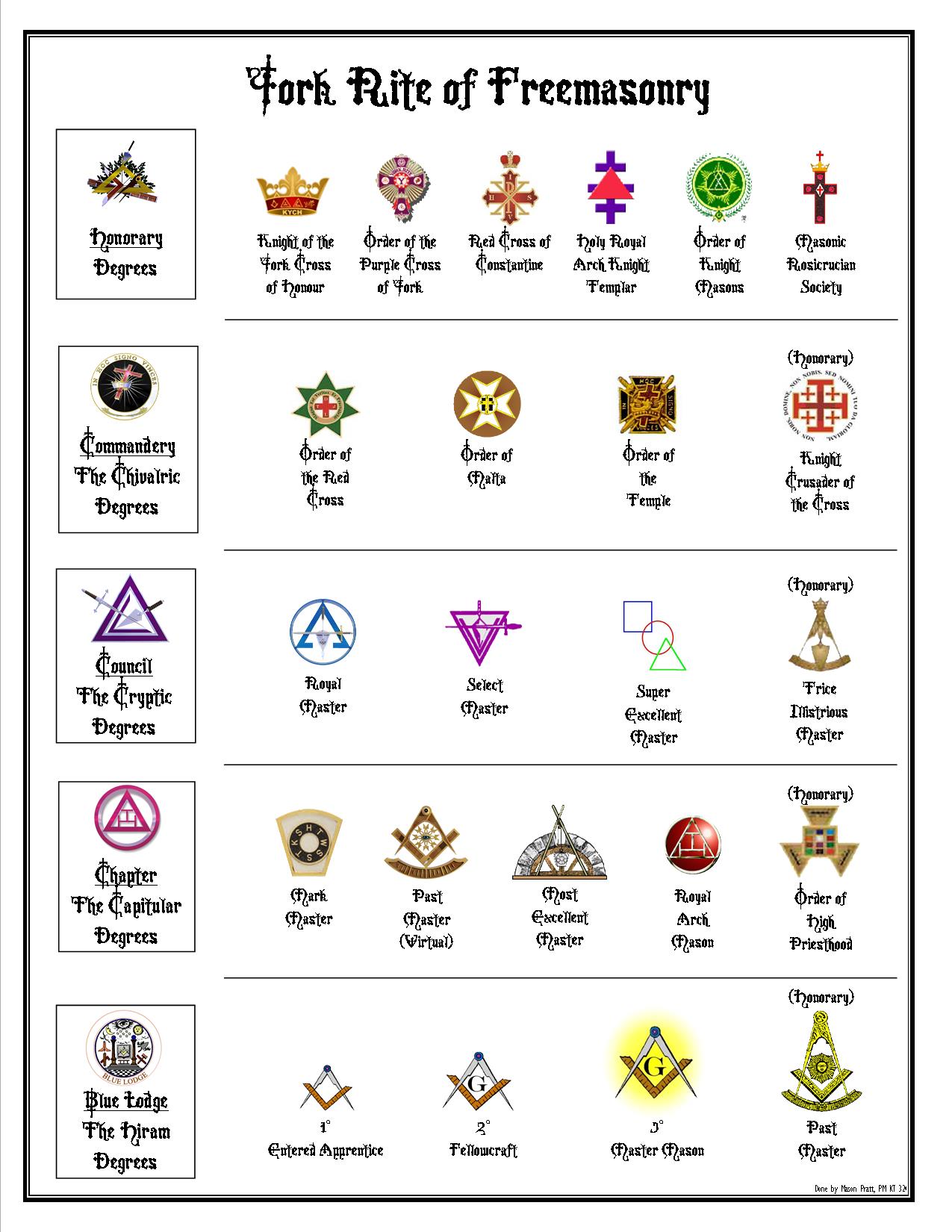
A poster
Chart of the Degrees within the York Rite Branch of Freemasonry courtesy of
Wor. Bro. Mason Pratt

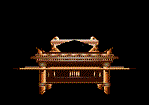
An Ark
Masonís Song
Ye seekers of
Wisdom, desirous to learn
The Ark Mason secret, you here will discern;
Give but close attention, it soon will unfold,
Ark Masons at present, are like those of old.
Theyíre Sons
of fair Science, that join hand in hand,
To whom Natureís Laws, free and open doth stand
Unrevealíd to all, in this virtuous School,
Where each Brotherís perfection is proved by a Rule.
Such Rules are
Social, they are such as are good,
By none but Ark Masons, rightly understood;
They are Mystic, they are glorious, and doth the Heart move
To Friendship, sweet Union, and Brotherly Love.
The tools that
they work with, are the Plumb Line of Truth,
The Level of Honor, curbs Passions of Youth;
The Square and Compass, so well they employ,
That Brethren thatís needy, relief soon enjoy.
The Axe, Saw,
and Borer, they use in due time,
The Chief of their Actions, they guide by a Line;
Within and without, they so place the Cement,
That the Ark is secure, and Noah content.
Within an Ark
Lodge, there can nothing reside
Belonging to Malice, base Envy or Pride;
For old Father Noah, doth teach his Sonís how
To shun such Hell Fiends, as their dangírous Foe.
Then let us
unite, and Unanimous join,
To establish the Order, as Masons combine;
Then true Sons of Wisdom, once blind, soon shall see,
The long wished for Zenith, of Ark Masonry.

To read a
complete history click on the link below:
The History of the Knights Templar by Charles G. Addison

